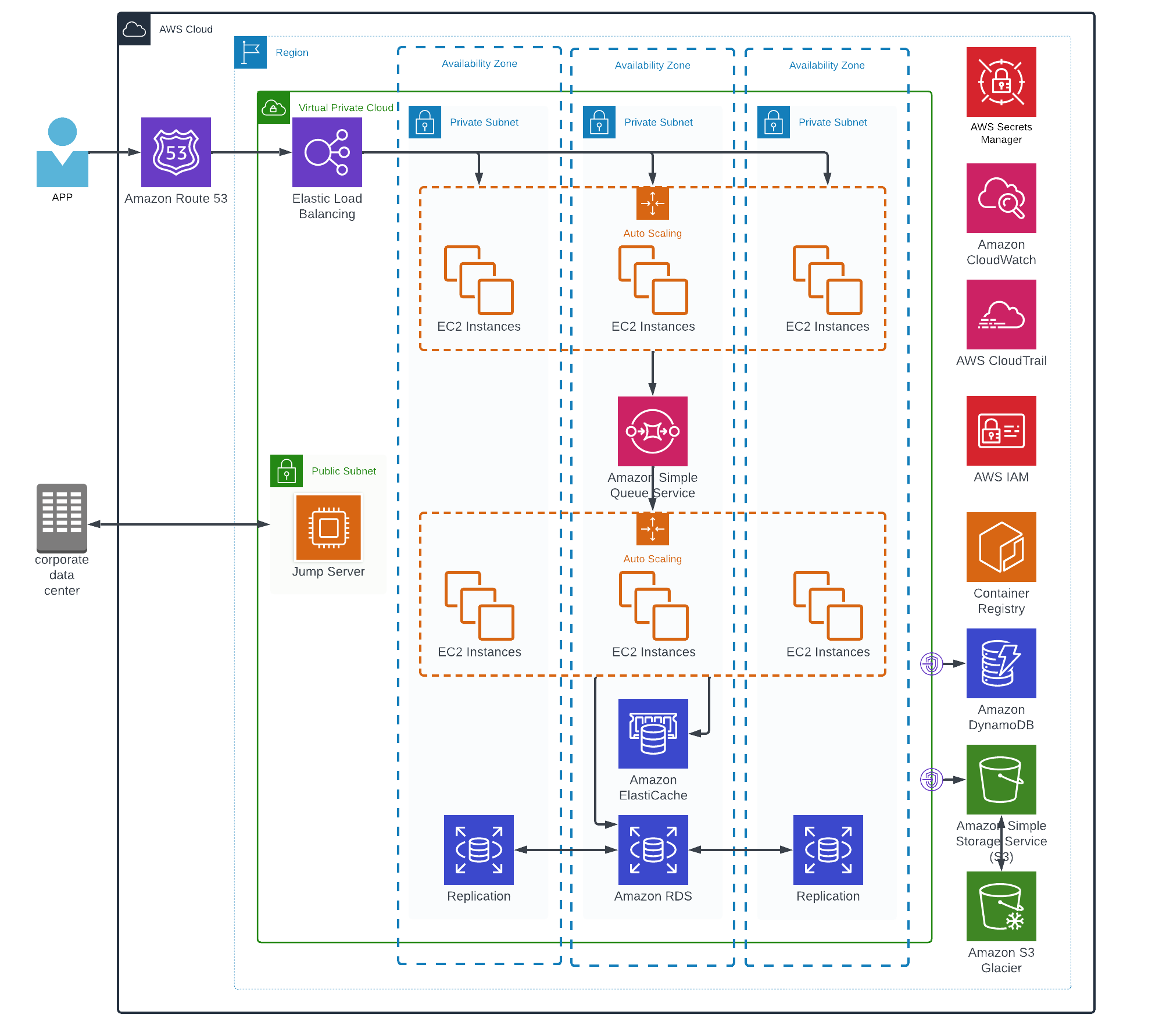The Customer and Challenges:
The client, specializing in IoT solutions that encompass both hardware and mobile applications (mobile App), encountered significant challenges as their mobile App gained popularity. Initially deployed in a single-machine Docker environment with manual resource management, the App struggled to handle the growing user base. The limitations of this setup became evident as the need for scalability, computational resources, and reliable backup solutions surged.
Local data centers were unable to keep pace with the increasing demand, resulting in performance bottlenecks and potential service disruptions. This inadequacy was particularly critical for an App designed to optimize hotel operations management, where seamless operation and optimal performance are paramount. The lack of scalable infrastructure led to difficulties in maintaining consistent service quality and meeting the expectations of a rapidly expanding user base.
Scalability emerged as a pressing issue. The existing infrastructure was not equipped to dynamically adapt to the App’s growing demands, leading to concerns over its ability to support future growth. To ensure the App’s continued success and reliability, the client needed a more robust and flexible infrastructure capable of delivering high performance and resilience in the face of increasing user loads. This necessitated a comprehensive re-evaluation and upgrade of their deployment strategy to support sustained growth and operational excellence.
The Solutions:
To address the customer’s challenges and align with the AWS Cloud Adoption Framework and best practices, we recommended a resource-adaptive, secure, highly available, and high-performance system architecture on the AWS platform. Our solution involved migrating application services from the existing Docker environment to Amazon EC2 instances. By utilizing multiple EC2 clusters with auto-scaling capabilities, we provided the necessary flexibility and control over the underlying infrastructure, significantly enhancing scalability and performance.
To further improve the system architecture, we advised decoupling services using Amazon Simple Queue Service (SQS). This approach allowed services to run independently and scale according to the queue size, ensuring efficient processing and handling of workloads during peak times. Additionally, we implemented AWS Identity and Access Management (IAM) for comprehensive user management, and leveraged AWS CloudTrail and CloudWatch for robust resource monitoring and log auditing. To ensure data security, we utilized AWS Key Management Service (KMS), security groups, and Network Access Control Lists (NACLs).
To enhance content distribution and availability, we established a global content delivery network using Amazon S3 and Route 53. We deployed appropriate storage solutions such as Amazon S3 for object storage, Amazon RDS for relational databases, and Amazon DynamoDB for NoSQL databases. These solutions collectively addressed the client’s immediate challenges, ensuring scalability, reliability, and security while positioning them for sustained growth and operational excellence.

The Outcomes:
The outcomes of the project highlight significant improvements across key operational metrics:
- Operational Cost Efficiency: By leveraging AWS managed services and optimizing infrastructure, DevOps costs were reduced by over 25%. This reduction is attributed to streamlined operations, automated management of resources, and efficient scaling without the overhead of managing underlying infrastructure manually.
- Enhanced Reliability and Security: System downtime was slashed by over 60% due to the implementation of a secure, reliable, and scalable infrastructure on AWS. Enhanced monitoring with CloudTrail and CloudWatch ensures proactive identification and mitigation of potential issues, minimizing disruptions and bolstering system reliability. Rigorous security measures further fortify data protection and compliance.
- Agility in Innovation: With the migration to AWS, the customer gained the capability to innovate and deploy updates faster. Leveraging AWS’s global content delivery enables rapid content distribution, while the flexible, scalable architecture facilitates quicker iteration cycles and deployment of new features. This agility empowers the customer to respond swiftly to market demands and continuously enhance the user experience.
These outcomes collectively underscore the transformative impact of AWS cloud adoption, driving efficiency, resilience, and innovation in the customer’s operations within the travel-tech sector.

